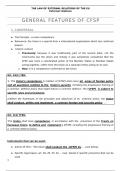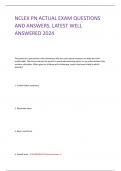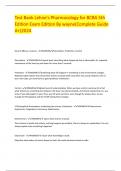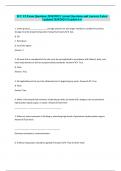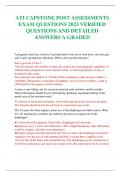Class notes
Detailed Lecture Notes: External Relations of the EU (2022/23) – Common Foreign and Security Policy (CFSP)
- Course
- Institution
Master the intricacies of the EU’s Common Foreign and Security Policy (CFSP) with this comprehensive set of lecture notes from the 2022/23 academic year. These notes offer detailed coverage of the key topics, including: • Competence and Legal Bases • Member States’ Obligations • N...
[Show more]
